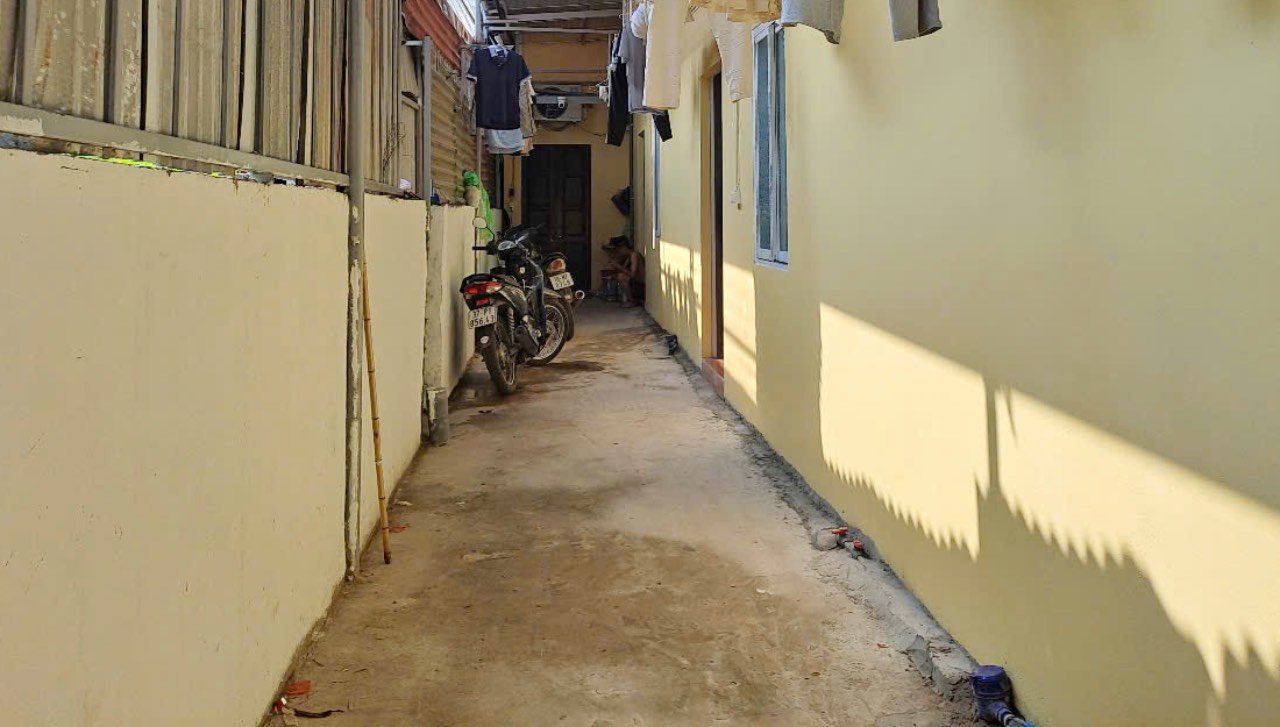Income is just enough to cover
Located deep in a small alley near Thang Long Industrial Park (Hanoi), the low-lying level 4 boarding house is home to dozens of workers far from home. Mr. Nguyen Van Thang - a worker at a company in Thang Long Industrial Park - shared that he and his wife are renting a room for 1.6 million VND/month, not including electricity, water, and household waste. His total monthly income is about more than 7 million VND, but after deducting food, travel expenses and send money back to his elderly parents, there is almost no money left.
"We just hope to have enough salary to live on, and don't dare to think about buying a house," Mr. Thang confided.
Not only Mr. Thang, many workers renting a room are also roaming in a cycle of high prices while their income is stagnant.
Mr. Cuong (from Nghe An) shared that both husband and wife are workers. Thanks to overtime, the combined income is about 13 million VND per month. However, the family has 4 members, so that amount of money is only enough to cover expenses, there is no extra to save or accumulate. Notably, to have such an income, the couple had to work more than 10 hours a day.
"How many things to worry about such as: rent, gas, food, spending for the whole family... My wife has to calculate very carefully to avoid being short of money. When prices increase simultaneously, if we don't work overtime, we won't be able to survive," said Mr. Cuong.
Mr. Cuong also shared that even though he has saved to the maximum, his current income is still just enough to cover basic monthly needs.
Workers hope for salary increase
Mr. Nguyen Van Tuan - a worker at a company in Thang Long Industrial Park - also has the same concern. According to him, although businesses pay slightly higher than the regional minimum wage, escalating prices make that income still not enough to spend.
Most workers have to choose to work overtime to earn more income. If he is unfortunately sick, he will definitely have to borrow or mortgage property to make ends meet, said Mr. Tuan.
Mr. Tuan also shared that he really hopes the state will soon adjust the minimum wage, and at the same time have more practical support policies for workers.
Current salary levels have not caught up with the rate of increase in living costs. We not only need to increase salaries but also hope that the State will take measures to stabilize prices, creating conditions to improve income. Only then can workers hope to own a house for themselves, said Mr. Tuan.

The Ministry of Home Affairs is seeking opinions on the draft Decree regulating the minimum wage for employees working under labor contracts. This Decree is expected to take effect from January 1, 2026.
According to the draft Decree, the Ministry of Home Affairs proposed to adjust the minimum monthly salary and minimum hourly salary applied to employees working under labor contracts to increase by 7.2% compared to the current level (along with the plan of the National Wage Council agreed to recommend the Government). Specifically: Regulate the minimum monthly salary levels in 4 regions: region I is 5,310,000 VND/month, region II is 4,730,000 VND/month, region III is 4,140,000 VND/month, region IV is 3,700,000 VND/month.
The above minimum wage increases from 250,000 VND - 350,000 VND (equivalent to an average of 7.2%) compared to the current minimum wage. The above minimum wage adjustment is about 0.6% higher than the minimum living standard of employees until the end of 2026 to improve employees. This adjustment level has the sharing and harmony of the interests of workers and businesses, paying attention to improving the lives of workers and ensuring the maintenance and development of business production of businesses.
Regulate the minimum hourly wages according to 4 regions: region I is 25,500 VND/hour, region II is 22,700 VND/hour, region III is 20,000 VND/hour, region IV is 17,800 VND/hour.
According to the Ministry of Home Affairs, the minimum hourly wage will continue to be determined based on the conversion method equivalent to the minimum monthly wage and standard working hours according to the provisions of the Labor Code. This is the method that ILO experts have recommended for Vietnam and have used when calculating the minimum hourly wage from 2022 to present.











